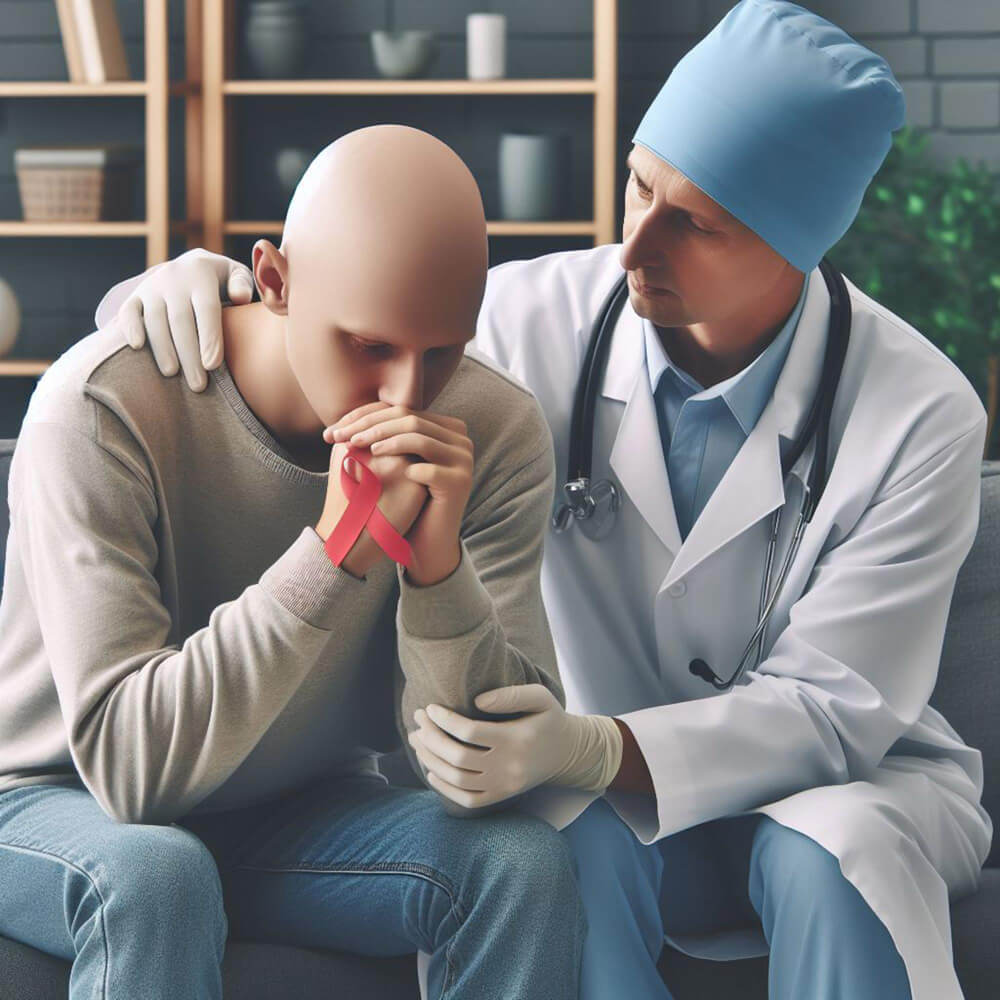Psychiatry, Therapy & Mental Health Services FAQs
Personalized Mental Health Program
What is Zeam’s Personalized Mental Health Program?
It’s a comprehensive, customized care model designed to meet your specific mental health needs. It combines psychiatry, therapy, medication management, and integrative wellness strategies tailored to your goals.
How is this different from standard mental health care?
Unlike traditional care models, we consider biological, emotional, psychological, and lifestyle factors in your treatment. Our team collaborates across disciplines to create a unified, individualized care plan.
Who is this program for?
Adults and adolescents looking for holistic, personalized care that addresses multiple aspects of mental health, including trauma, mood disorders, ADHD, and more.
Psychiatry Services
What psychiatric conditions do you treat?
We treat depression, anxiety, PTSD, OCD, bipolar disorder, ADHD, and other complex mental health challenges.
Do you offer medication management?
Yes, our psychiatrists provide evidence-based medication management, often in combination with therapy or integrative treatments.
What ages do you serve in psychiatry?
We serve children, teens, and adults. Our team includes child, adolescent, adult, and forensic psychiatrists.
Depression
How do you treat depression at Zeam?
We use a range of tools including medication, therapy (CBT, EMDR, psychodynamic therapy), ketamine treatments, nutritional psychiatry, and neurofeedback.
What if I haven’t responded to antidepressants?
We specialize in treatment-resistant depression and offer options like Spravato, IV ketamine, and TMS.
Anxiety
What types of anxiety do you treat?
We treat generalized anxiety, social anxiety, panic disorder, and anxiety tied to trauma or life transitions.
What treatments do you offer for anxiety?
CBT, EMDR, medication, neurofeedback, group therapy, and integrative options like nutritional psychiatry.
PTSD
Do you treat complex or long-term PTSD?
Yes. We offer trauma-informed care using EMDR, ketamine-assisted therapy, psychodynamic therapy, and group support.
Do you have PTSD support groups?
Yes, including a Women’s PTSD Support Group for trauma survivors.
ADHD
Do you diagnose and treat adult ADHD?
Yes. We provide in-depth evaluations and evidence-based treatments including medication, therapy, and neurofeedback.
How do you diagnose ADHD?
We use clinical interviews, standardized screening tools, and QB Check, a digital attention and activity assessment.
OCD
What treatments do you offer for OCD?
We use exposure and response prevention (ERP), medication, and CBT tailored to obsessive-compulsive symptoms.
Do you treat intrusive thoughts or compulsive behaviors?
Yes. We customize care plans to address the full spectrum of OCD presentations.
Bipolar Disorder
How do you treat bipolar disorder?
Treatment includes mood stabilizers, therapy for emotional regulation, and collaborative psychiatric care.
Can you help with medication side effects?
Yes, we monitor and adjust treatment to minimize side effects while optimizing stability.
Nutritional Psychiatry
What is nutritional psychiatry?
It’s the use of dietary strategies and supplements to support mood, cognition, and mental health.
Can food really affect mental health?
Yes. Inflammation, blood sugar, gut health, and nutrient deficiencies all play roles in how we feel.
Women’s Mental Health
What makes your women’s program unique?
We focus on hormonal transitions, trauma recovery, and stressors unique to women’s lives, with identity-informed care.
Do you address perinatal or menopausal mental health?
Yes. We support mental health through all stages including pregnancy, postpartum, and menopause.
Therapy Services
What types of therapy do you offer?
CBT, EMDR, psychodynamic therapy, neurofeedback, and specialized group therapies.
Are sessions available online?
Yes. We offer in-person and virtual therapy options to meet your schedule.
Cognitive Behavioral Therapy (CBT)
What does CBT help with?
CBT is effective for anxiety, depression, OCD, ADHD, and trauma by helping you change unhelpful thought patterns.
How long does CBT take?
Many people see results in 8–12 sessions, though treatment can be longer depending on goals.
Psychotherapy
Are therapists covered by insurance?
Most health insurance plans cover therapy, especially if it’s deemed medically necessary. Coverage might include a co-pay or require you to meet a deductible first. Policies vary by insurer, and some services may not be covered.
Is a psychotherapist a doctor?
Psychotherapists are not typically medical doctors. They usually hold a master’s or doctoral degree in psychology, counseling, or social work. While some psychotherapists may have a Ph.D. or Psy.D., they are not medical doctors unless they also possess a medical degree.
What’s the difference between a psychologist and a psychotherapist?
A psychologist typically holds a doctoral degree and specializes in psychological testing, research, and therapy. A psychotherapist can be a psychologist, social worker, or counselor trained in conducting therapy. Psychotherapists focus more on treating emotional and mental suffering in patients with behavioral intervention.
How much does online therapy cost?
Online therapy costs can range widely, often between $65 and $200 per session, depending on the provider’s training and location. Insurance may cover these services, which helps reduce patients’ out-of-pocket costs.
Can online therapists prescribe medication?
Online therapists generally cannot prescribe medication unless they are licensed psychiatrists or hold other relevant medical qualifications that allow them to prescribe within their state. This restriction is in place to ensure that prescribing practices meet local regulatory standards and that patients receive safe and appropriate care.
EMDR
What is EMDR?
Eye Movement Desensitization and Reprocessing helps process traumatic memories using guided eye movements.
Is EMDR safe?
Yes. It’s a well-researched trauma therapy used worldwide.
Psychodynamic Therapy
How is psychodynamic therapy different?
It explores unconscious patterns and past experiences to understand and shift present-day struggles.
Is this a long-term therapy?
It can be short or long-term depending on your needs.
Neurofeedback
What is neurofeedback?
Neurofeedback, formerly known as EEG biofeedback, is a therapy that involves measuring and providing feedback on brainwave activity. Through operant conditioning, it helps individuals learn to regulate their brain function to improve mental health conditions such as ADHD, anxiety, and depression.
How does neurofeedback work?
Neurofeedback works by attaching sensors to the scalp to monitor brain activity. Feedback is given through sound or visual cues when the brain produces desired wave patterns. This operant conditioning helps the brain learn to regulate itself, improving its overall function and reducing symptoms of various disorders.
Is neurofeedback covered by insurance?
Coverage for neurofeedback varies widely among insurance providers. While some plans may cover it, particularly when it’s part of a comprehensive treatment plan for specific conditions like ADHD, many insurers still consider it experimental and may not provide coverage.
How long does it take for neurofeedback to work?
The effectiveness of neurofeedback can vary, but typically, patients may see improvements after 10 to 20 sessions. Consistency and the specific condition being treated are crucial in determining the duration before noticeable benefits are achieved.
Who is it for?
People with ADHD, anxiety, sleep issues, PTSD, and other brain-based conditions.
Group Therapy
What group therapy options are available?
Understanding Anxiety Group, Women’s PTSD Support Group, and Motivate for Change (a behavioral activation group).
Do I have to share in group therapy?
Sharing is optional, and groups are guided by licensed therapists to ensure emotional safety.
Ketamine Therapy
Who is not a good candidate for ketamine therapy?
Individuals with uncontrolled hypertension, recent heart issues, a history of substance abuse or psychosis, and pregnant or breastfeeding women are generally not suitable candidates for ketamine therapy due to potential risks like elevated blood pressure and adverse psychological effects.
What is ketamine infusion therapy?
Ketamine infusion therapy involves administering ketamine through an IV to treat conditions like depression and certain mental health disorders. It acts on neurotransmitters in the brain, providing rapid symptom relief by promoting new neural connections and modulating mood-related brain activity.
How many ketamine treatments for depression?
Typically, a standard course of ketamine treatments for depression consists of six infusions over two to three weeks. However, the number of treatments can vary based on individual response and the severity of symptoms, with maintenance sessions potentially needed to sustain benefits.
Does ketamine therapy get you high?
Ketamine therapy can induce a dissociative state with hallucinogenic effects, which some might interpret as a “high.” These effects are monitored and managed in a clinical setting to focus on therapeutic benefits rather than recreational experiences.
Ketamine Assisted Psychotherapy
How is ketamine-assisted psychotherapy different from standard ketamine treatment?
Standard ketamine focuses only on the medication effect. Ketamine-assisted psychotherapy (KAP) integrates therapeutic sessions during and after dosing—amplifying emotional insights and helping patients integrate breakthroughs for lasting change.
Am I a candidate for ketamine therapy?
Ideal candidates have tried multiple treatments with limited relief, experience treatment-resistant depression, PTSD, suicidal ideation, or emotional numbness. A psychiatric evaluation confirms safety and readiness.
Group Ketamine Therapy
What is group ketamine therapy like?
You participate in a small, supportive group facilitated by clinicians. Dosing is followed by guided reflection and integration.
Is it as effective as individual treatment?
Group therapy offers unique benefits like community connection and shared insight.
Spravato (Esketamine)
What is Spravato?
A prescription nasal spray form of ketamine approved for treatment-resistant depression.
How is Spravato different from IV ketamine?
Spravato is taken intranasally under supervision, and approved by the FDA for ongoing use with an oral antidepressant.
IV Ketamine Treatments
What happens during an IV ketamine session?
You relax in a private room while receiving a low-dose infusion under medical supervision.
How soon will I feel relief?
Some people feel improvements within hours or days, especially for depression or suicidality.
TMS (Transcranial Magnetic Stimulation)
What is TMS?
A non-invasive treatment that uses magnetic pulses to stimulate brain areas involved in mood regulation.
Is TMS covered by insurance?
Yes, in most cases. We verify coverage before starting treatment.







